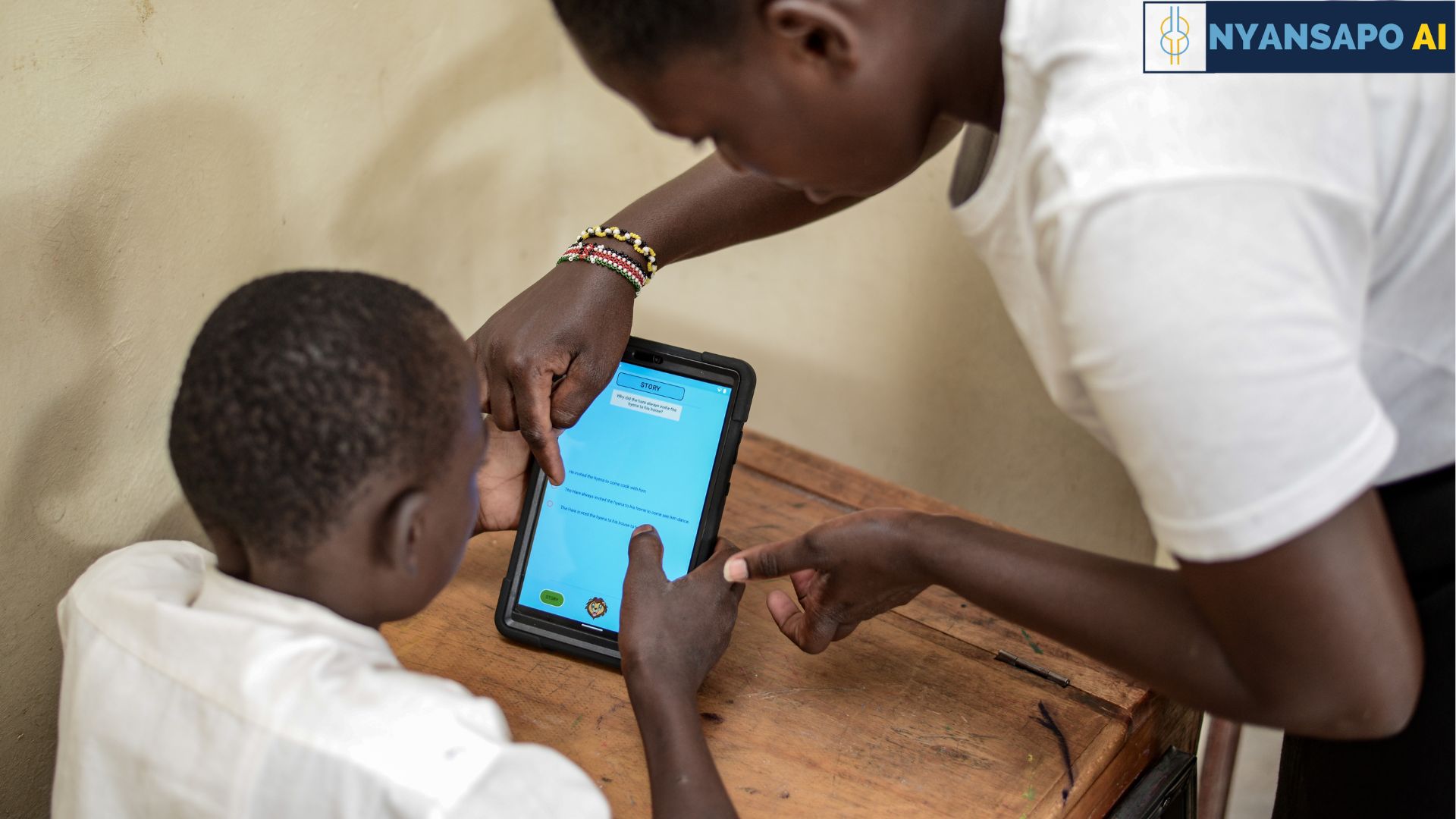Project Duration:
12 Months
Target Beneficiaries:
1,000 rural children in Kitui County, Kenya
60 Early Childhood Development Education (ECDE) teachers across 30 pilot schools
300 parents, education officers, and key stakeholders
Project Location:
Kitui County, Kenya
Implementing Organization:
Nyansapo AI
Project Overview:
Nyansapo AI is implementing a 12-month project in Kitui County, Kenya, to address the critical challenge of foundational literacy and numeracy deficits among rural children. With 90% of 10-year-olds in Sub-Saharan Africa unable to read and understand a simple text (UNICEF, 2023), this project leverages cutting-edge AI technologies to provide real-time assessments, personalized learning pathways, and data-driven instructional support. By aligning with Kenya’s Competency-Based Curriculum (CBC), the project aims to improve learning outcomes for 1,000 children, enhance teacher capacity, and engage key stakeholders in understanding the transformative potential of AI in education.
Project Goal:
To improve foundational literacy and numeracy competencies of 1,000 rural children in Kitui County, Kenya, by leveraging AI-powered assessments, personalized learning pathways, and data-driven instructional support.
Project Objectives:
Teacher Capacity Building:
By the end of Month 6, train 80% of the 60 ECDE teachers in 30 pilot schools to effectively use Nyansapo AI tools, including AI-powered assessments, data analysis features, and lesson plan generation aligned with the Competency-Based Curriculum (CBC). Success will be measured by at least 90% of trained teachers demonstrating proficiency in using these tools through practical observations, teacher self-assessments, and student feedback.
Student Learning Improvement:
Within 12 months, ensure that 80% of the 1,000 targeted learners engage with AI-powered assessments and personalized learning pathways to enhance their literacy and numeracy skills. Success will be measured by at least 60% of students achieving a 10% improvement in their literacy and numeracy scores compared to baseline data, with assessments conducted at the start and end of the pilot phase.
Stakeholder Engagement and Data-Driven Awareness:
Within 12 months, engage 80% of the targeted 300 parents, education officers, and key stakeholders in understanding the role of AI and data-driven tools in supporting early childhood literacy and numeracy. Success will be measured by at least 65% of stakeholders reporting an improved understanding of how AI-powered assessments and personalized learning can enhance foundational education, as assessed through surveys and feedback sessions.
Key Activities:
Teacher Training: Conduct hands-on workshops and ongoing mentorship for 60 ECDE teachers on using Nyansapo AI tools, including AI-powered assessments, data analysis, and CBC-aligned lesson planning.
AI-Powered Assessments: Implement real-time assessments using speech-to-text and computer vision technologies to evaluate student performance in literacy and numeracy.
Personalized Learning Pathways: Use AI to dynamically group students based on skill levels and provide tailored learning activities to address individual needs.
Stakeholder Workshops: Organize workshops and meetings for parents, education officers, and stakeholders to demonstrate the impact of AI tools on learning outcomes and foster community support.
Data Collection and Analysis: Conduct baseline and endline assessments to measure student progress and generate actionable insights for teachers and policymakers.
Expected Outcomes:
Improved teacher capacity to use AI tools effectively, leading to more data-driven and personalized instruction.
Enhanced literacy and numeracy skills among 1,000 children, with measurable improvements in learning outcomes.
Increased awareness and support among parents and stakeholders for AI-powered education tools, fostering a collaborative ecosystem for sustainable change.
Monitoring and Evaluation Framework:
Data Collection Methods: Baseline and endline assessments, teacher proficiency evaluations, stakeholder surveys, and feedback sessions.
Key Performance Indicators (KPIs):
Percentage of teachers demonstrating proficiency in using Nyansapo AI tools (target: 90%).
Percentage of students showing a 10% improvement in literacy and numeracy scores (target: 60%).
Percentage of stakeholders reporting improved understanding of AI tools (target: 65%).
Reporting: Regular progress reports, mid-term review, and a final evaluation report to assess project impact and inform scalability.
Sustainability:
The project will build local capacity by training teachers and engaging stakeholders, ensuring the continued use of AI tools beyond the project duration. Data-driven insights will inform policy decisions, fostering long-term improvements in early childhood education.
Conclusion:
Nyansapo AI’s project in Kitui County represents a transformative approach to addressing foundational literacy and numeracy deficits. By leveraging AI technologies, the project empowers teachers, enhances student learning, and engages stakeholders, ultimately contributing to sustainable educational development in underserved communities.
Nyansapo AI addresses this challenge through AI-powered, real-time assessments aligned with Kenya’s Competency-Based Curriculum (CBC). Our tool leverages speech-to-text and computer vision technologies to evaluate student performance in literacy and numeracy, providing immediate feedback to teachers. By dynamically grouping students based on skill levels, Nyansapo AI ensures personalized learning pathways that improve outcomes. With data-driven insights, educators and policymakers can make informed decisions, closing the learning gap and transforming education across underserved communities.




